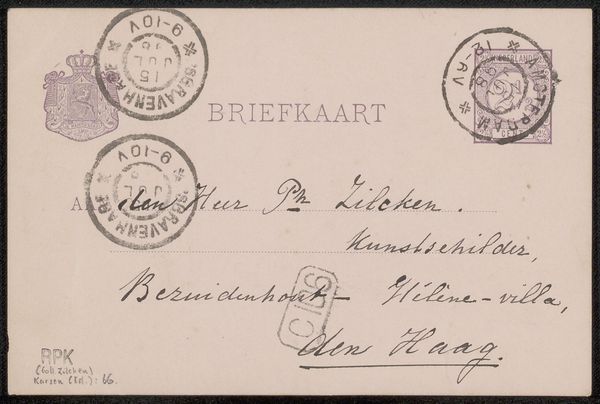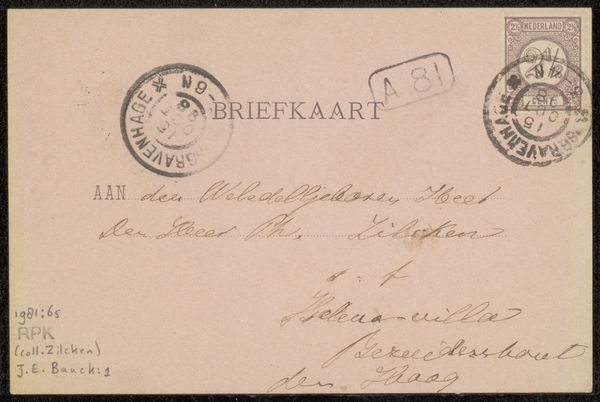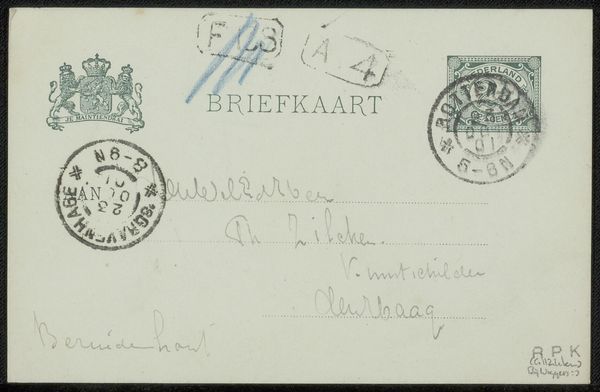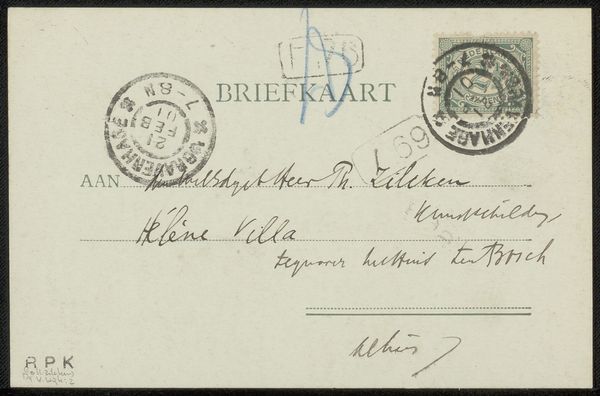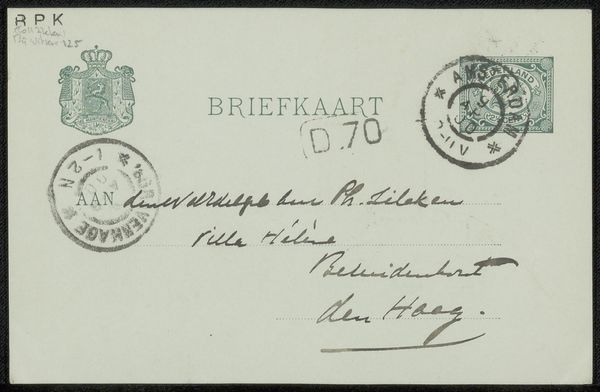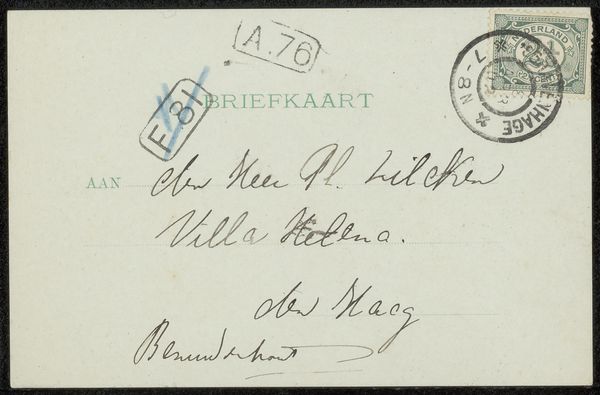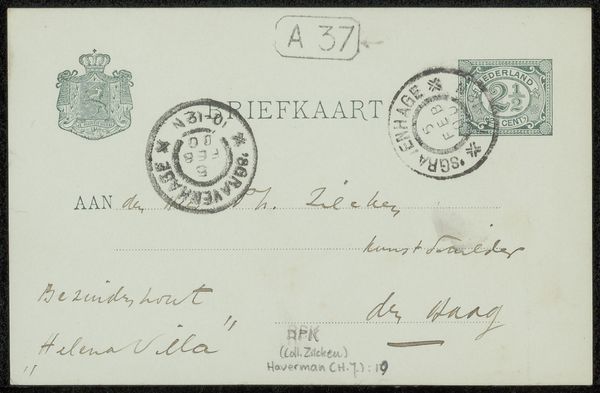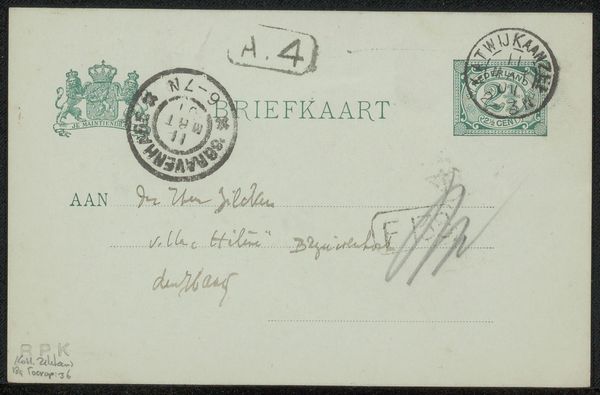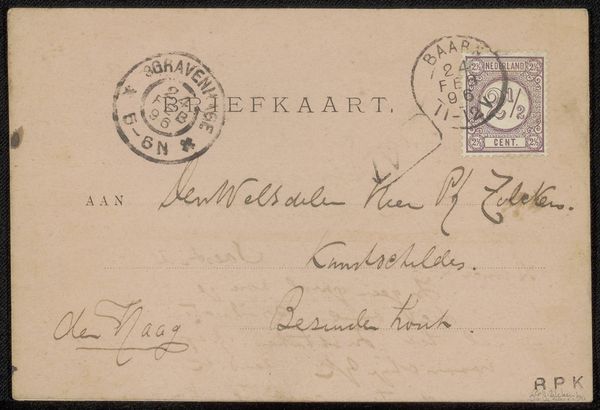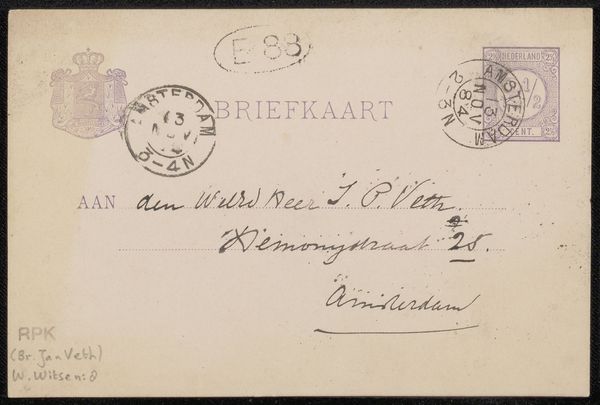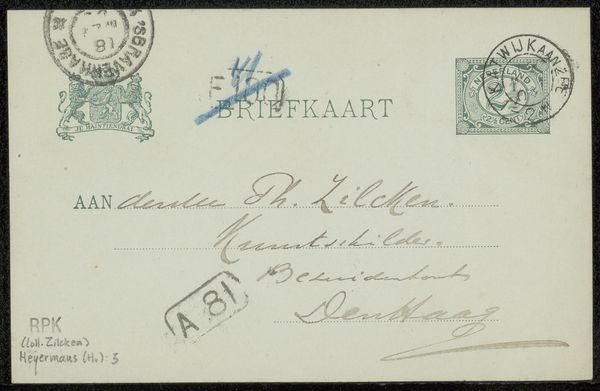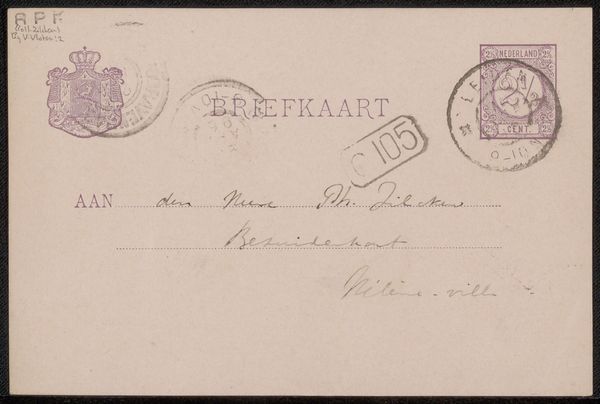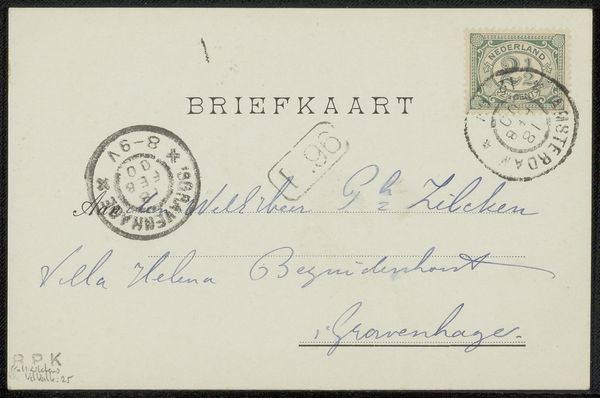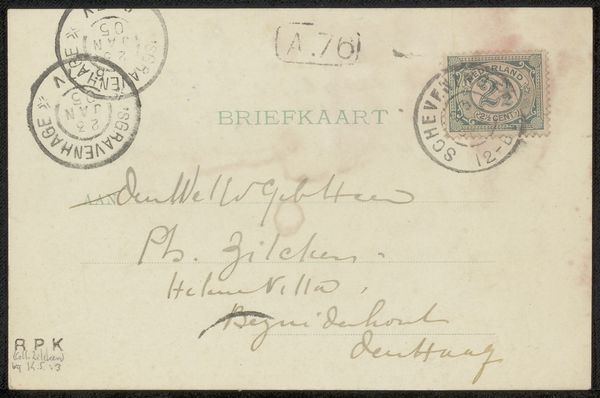
drawing, paper, ink, pen
#
drawing
#
pen sketch
#
paper
#
ink
#
pen
#
calligraphy
Copyright: Rijks Museum: Open Domain
Curator: This piece, entitled "Briefkaart aan Philip Zilcken," is attributed to Derk Wiggers, dating to around 1925 or earlier. It is rendered in pen and ink on paper. A simple pen sketch that reveals an intimate correspondence frozen in time. Editor: It is so minimalist, almost ethereal. The delicate script dances across the aged paper; the postmarks give it a tangible link to another era. There’s a poignancy in these personal remnants that official portraits often lack. Curator: Absolutely, and it brings to the forefront questions of art as not just creation but also artifact, especially considering it is, after all, a postcard. Who was Philip Zilcken and what socio-political circumstances allowed for their correspondence to take place, where art and communication collide in this object? We see in the stamps the very mechanics of an empire manifested on paper. Editor: Right! And the handwriting becomes a site of identity and intention, both conscious and unconscious. How does that relate to notions of authenticity within artistic creation versus personal correspondence, particularly when authorship is clearly marked but the message remains shielded? I want to investigate that line between the public persona of art versus private life. Curator: Precisely. Its presence in our collection asks critical questions about what and whose stories are considered worthy of preservation. What frameworks are in place, socially, culturally and economically to give credence to artworks but disregard daily experiences? We can see the echoes of Derrida in our deconstruction. Editor: For me, the appeal rests in how it elevates something mundane into something quietly extraordinary through attention and curation, urging reflection on how societal biases influence artistic narratives. It suggests avenues for subversion, challenging notions of access, audience, and ultimately the politics inherent in how and why certain pieces come to represent broader movements or cultural sentiments, and in which circumstances! Curator: Exactly. A humble reminder to continually question the lenses through which we view history, culture and art and that an avant-garde art collection can embrace all expressions. Editor: I wholeheartedly agree. Its whisper speaks volumes, resonating powerfully amidst grander, louder statements, a humble reminder of a quieter humanity.
Comments
No comments
Be the first to comment and join the conversation on the ultimate creative platform.
